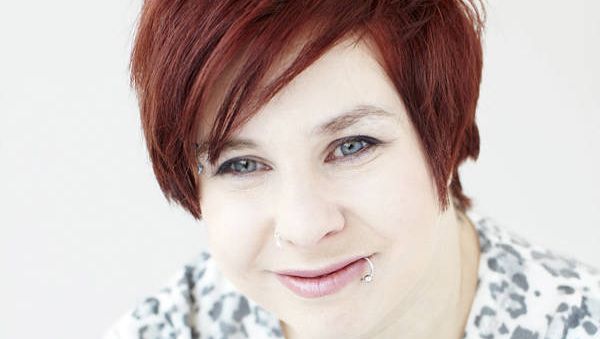Michelle Knight: 'My Past is My Past, and That's Where it Remains'
One of three missing Cleveland women, Michelle Knight was held captive for 10 years before going free. Here, she recounts the living nightmare that shocked the country and how she's rebuilt her life.


On May 6, 2013, three missing young women were found in a Cleveland house owned by a former bus driver named Ariel Castro. The women—Michelle Knight, Gina DeJesus, and Amanda Berry—had been kidnapped, raped, and tortured by Castro for about a decade, and their eventual escape made gripping international headlines. Knight has written a new memoir, Finding Me: A Decade of Darkness, a Life Reclaimed (Weinstein Books), which chronicles how she endured Castro's brutal assaults and explains how she's savoring her freedom.
Marie Claire: What made you decide to tell your story? I can't imagine that it was easy for you to write the book.
Michelle Knight: It was very hard, but I did it to help others. I want people who have gone through some type of pain to know that they can overcome it, whether it's divorce or abuse. It is hard to sit there and say, "I can see the brighter side of this, and it happened for a reason." Most people can't see that.
MC: I know in the book you talk about thinking of your son's face to help you get through your ordeal [Knight had a son before she was kidnapped who was adopted after she disappeared]. What else helped you get through it at the time?
MK: Most of the time it was drawing. It was like emotional drawing. I drew what I was thinking at the time. When I had a death of the child, I would draw that death. People might say that's weird, why would you do that? I don't know how to explain it, but it's to show me that there's a reason why that baby was not there. It's to prevent that baby from going through pain and suffering as I did.
MC: I know in the book you say your son's new parents are not allowing you to see him because they're worried that it's going to upset him. Has there been any change in that situation?
MK: No there hasn't. But I send him letters and I send him cards. I recently made an Easter basket for him. I just wish the best for him and I'm hoping that later on in life that he can contact me. I want him to do it when he's ready.
MC: Has it been hard to deal with all the attention?
MK: It's not people wanting to know about me that's a problem; it's the people who ask inappropriate questions. A guy walked up to me and said, "I enjoy torture books." Those are the types of things that make me shun people who are interested in my story.
MC: What is your living situation like now?
MK: I have my own apartment [in Cleveland]. I keep my blinds open so I can see the sky and the birds flying past, because that's beauty I missed for all those years.
MC: What else did you miss?
MK: How you can look up and not see something covering the windows. Or flowers and the way they smell. Or walking through grass. I remember thinking, I can't remember how long it's been since I actually walked on the ground outside. Or a breeze that flows through your hair. I was able to feel that again.
Get exclusive access to fashion and beauty trends, hot-off-the-press celebrity news, and more.
MC: What was the most exciting thing about having your own space to yourself? Do you remember doing anything in particular?
MK: Being able to cook food that I actually like to eat. The first meal that I cooked was pizza [from scratch].
MC: Are you recognized on the street in Cleveland?
MK: Quite often. One lady was running down the street crying when she saw me. She told me my story helped her tremendously through a divorce because her husband had beaten her severely. Her children suffered at the hands of him and she said, "You gave me the inner strength to move on."
MC: Are you in touch with Amanda Berry and Gina DeJesus, who are cowriting their own book?
MK: We do not have any contact right now, [but] I'm hoping later down the line … I will always be there for them, but I think they need time to heal.
MC: Why did you decide to write your book solo?
MK: I just wanted to be able to tell the full story. With three different people that are writing in the same book, there are certain things that are gonna be stripped out because they have to make room for the other girls. So I figured let them do what they want to do and I'll just write my own book.
MC: It sounds like people did have suspicions of Ariel Castro, but they didn't call the cops. What do you think prevented them from acting?
MK: I think just the neighborhood. Where he lived there was a lot of rival gangs, so people in those types of neighborhoods choose to keep their lips sealed because of the old saying, "Snitches wear stitches."
MC: How did you feel when you found out that Ariel Castro committed suicide in jail? Did it bother you that he would not have to live his life in captivity as you had?
MK: God is our judge, and I'm pretty sure [Castro] met his maker. But you know, I wouldn't have wished him death, or any harmful punishment, because in my heart, I can forgive him.
MC: Was being able to forgive an important part of your healing?
MK: It took a lot of time because, at first, I was angry with him. [Seeing him at the sentencing] was another part of my healing process, to sit there and face him and let him know what he'd done to me and how it affected me, and how I'm not going to let him define me. My past is my past, and that's where it remains.
